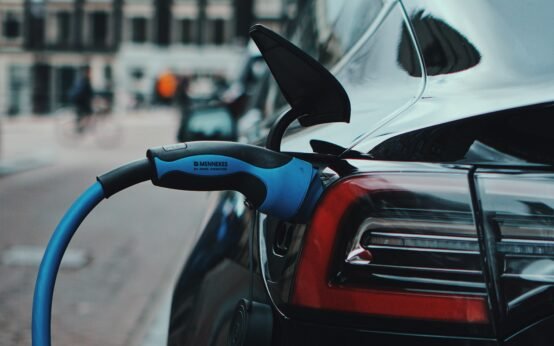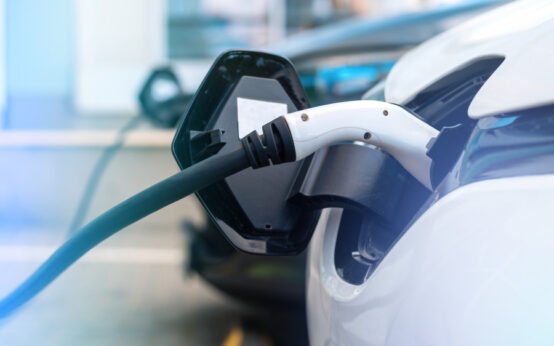As the world moves towards a more sustainable future, electric vehicles (EVs) have become an increasingly popular choice for environmentally-conscious consumers. However, one of the key considerations when purchasing a vehicle is the long-term costs involved. In this article, we will explore the economics of owning an electric vehicle compared to a gas-powered vehicle.
Upfront Costs
When it comes to upfront costs, electric vehicles tend to be more expensive than their gas-powered counterparts. This is primarily due to the higher cost of batteries and other electric components. However, it’s important to note that the gap in upfront costs is gradually narrowing as technology advances and economies of scale come into play.
Additionally, many governments and local authorities offer incentives and tax credits to encourage the adoption of electric vehicles. These incentives can significantly reduce the initial purchase price, making EVs more affordable for consumers.
Operating Costs
While electric vehicles have a higher upfront cost, they typically have lower operating costs compared to gas-powered vehicles. The cost of electricity is generally lower than the cost of gasoline, resulting in lower fuel expenses for EV owners.
Furthermore, electric vehicles require less maintenance compared to traditional vehicles. EVs have fewer moving parts, which means there are fewer components that can wear out or break down. This translates to lower maintenance and repair costs over the long term.
Charging Infrastructure
One of the concerns often raised about electric vehicles is the availability of charging infrastructure. While it is true that the charging network is not as extensive as the traditional gas station network, it is rapidly expanding.
Many governments and private companies are investing heavily in the development of charging infrastructure, making it easier for EV owners to find charging stations. In addition, the convenience of charging at home overnight means that most EV owners rarely need to rely on public charging stations.
Resale Value
Another factor to consider when evaluating the economics of owning an electric vehicle long-term is the resale value. Historically, electric vehicles have had lower resale values compared to gas-powered vehicles. However, as the market for EVs continues to grow and technology improves, this gap is expected to narrow.
Moreover, as more countries and cities implement stricter emissions regulations, gas-powered vehicles may face restrictions or higher taxes in the future. This could further reduce the resale value of gas-powered vehicles, making electric vehicles a more attractive option for potential buyers.
Environmental Impact
While the economics of owning an electric vehicle are important, it’s also crucial to consider the environmental impact. EVs produce zero tailpipe emissions, which helps reduce air pollution and greenhouse gas emissions. By driving an electric vehicle, you are contributing to a cleaner and more sustainable future.
Furthermore, as the world transitions to renewable energy sources, the carbon footprint of electric vehicles will continue to decrease. This means that the environmental benefits of owning an electric vehicle will only increase over time.
Conclusion
When it comes to the economics of owning an electric vehicle long-term, there are several factors to consider. While EVs may have a higher upfront cost, they often have lower operating costs and require less maintenance. The availability of charging infrastructure is improving, and the resale value of electric vehicles is expected to increase.
Ultimately, the decision to purchase an electric vehicle should be based on individual circumstances and priorities. However, as technology advances and economies of scale continue to drive down costs, electric vehicles are becoming an increasingly attractive and viable option for consumers.



 Is the 2025 Toyota Crown worth $41,440?
Is the 2025 Toyota Crown worth $41,440?  EV Innovations: Exploring the Latest Technological Advancements in Electric Cars
EV Innovations: Exploring the Latest Technological Advancements in Electric Cars  EV Maintenance 101: Essential Tips for Keeping Your Electric Vehicle in Top Shape
EV Maintenance 101: Essential Tips for Keeping Your Electric Vehicle in Top Shape  Crypto Market Value Drops 30% as Trump Tariffs Spark Global Economic Turmoil
Crypto Market Value Drops 30% as Trump Tariffs Spark Global Economic Turmoil  Fartcoin Surges 10% as Major Cryptocurrencies and Stocks Suffer Amid Trump’s Trade War
Fartcoin Surges 10% as Major Cryptocurrencies and Stocks Suffer Amid Trump’s Trade War  Crypto Funds Face $240 Million in Outflows as U.S. Tariffs Drive Market Uncertainty, Bitcoin ETPs Lead Decline
Crypto Funds Face $240 Million in Outflows as U.S. Tariffs Drive Market Uncertainty, Bitcoin ETPs Lead Decline  Why Cryptocurrency is Losing Trust as a Currency
Why Cryptocurrency is Losing Trust as a Currency  EUR/USD Pair Projections for Q3 2023 in Forex Trading
EUR/USD Pair Projections for Q3 2023 in Forex Trading  USD/JPY Pair Projections for Q3 2023 in Forex Trading
USD/JPY Pair Projections for Q3 2023 in Forex Trading